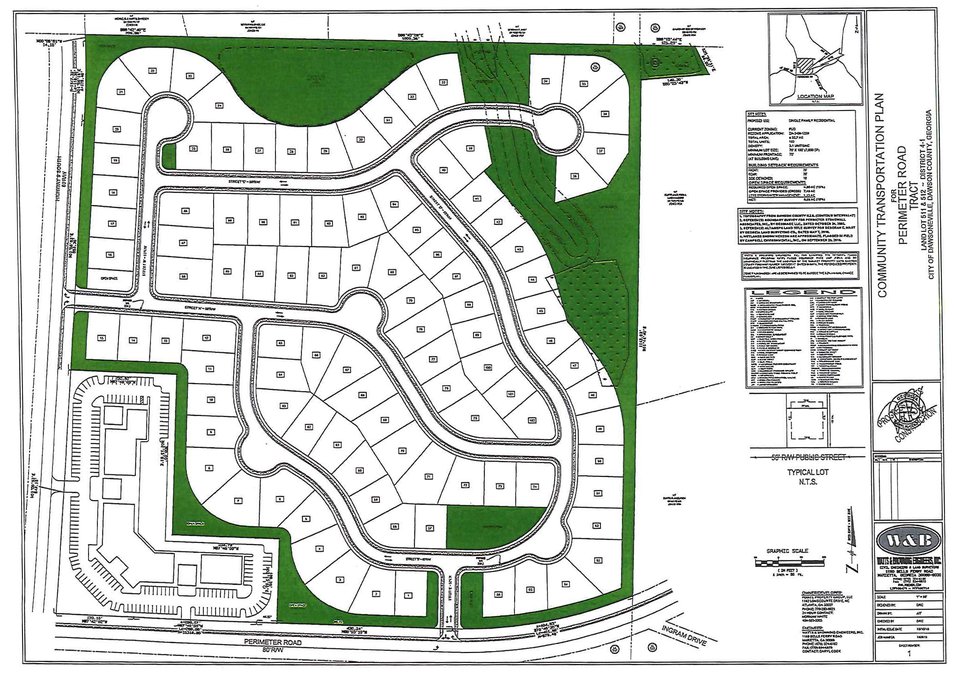The Dawsonville city council voted unanimously last week to approve a site plan change for a residential development of 102 houses before voting 3-1 to indefinitely table an impact fee study.
Though the change means lower density (3.12 units per acre compared to the 3.77 units per acre approved in 2006) the approval allows Fall Leaf Residential LLC to move forward with plans to construct the homes on a 32.6-acre parcel located at Hwy. 9 and Perimeter Road near JC Burt Road.
The parcel is part of a planned unit development with a four-acre commercial component, though Fall Leaf Residential representative Tommy Barnes has said he is not aware of what that commercial component would look like.
Barnes said that the reduction in homes from 123 units to 102 is due to some changes in the city’s zoning ordinances as well as challenges discovered during preliminary engineering.
The subdivision will have two entrances, one on Perimeter Road that would serve as the main entrance and one on Hwy. 9 that will be right-in, right-out only.
The city planning commission voted Jan. 14 to recommend the city council approve the request with stipulations, all of which Planning Director Robbie Irvin said would be covered by his department's civil review process.
The council voted unanimously Jan. 22 to approve the reduction in density.
The council also voted to put an impact fee study on hold after considering a proposal by Bill Ross of Ross and Associates in December to conduct the study.
Impact fees are charged to new development in order to pay for services demanded by that new growth.
The goal of impact fees is to shift the burden from the tax base as a whole to just the new growth and development, so that everyone pays their fair share of capital improvements.
The public facilities that could benefit
from the impact fees in the city potentially include water and sewer, roads and
parks and recreation.
The funds generated could not be used to maintain services that already exist
but to increase the capacity of those services.
Mayor Mike Eason said that because the city already charges tap fees, they could not use the impact fees to collect money for water and sewer, and that city’s contract engineering firm is currently conducting a rate study and could present recommendations at a future meeting to increase the tap fee.
“So we don’t need to get Mr. Ross to provide that service,” Eason said.
Council member Stephen Tolson said he had been interested to see whether the impact fees would benefit the community, but based on research he would not be recommending the council vote to move forward with the impact fee study.
“Partially because the tap fee is already being utilized…it doesn’t sound like the investment is really worth the return; the return is over a very long period of time as well,” he said.
Council member Mark French said he would still like to have the study done.
“I’m concerned that as the city grows and we continue to gain in population, citizen wise, that our portion of the sales tax money may not be sufficient to cover the expenses required to provide the same level of services our residents presently enjoy, and thus we would end up having to levy a tax,” French said. “I would like to postpone that inevitability as long as possible, and I think this might be one method by which to do so.”
The council voted 3-1 with French opposed to indefinitely table the impact fee study.
The next city council meeting will be held at 5:30 p.m. Feb. 4 at city hall.

